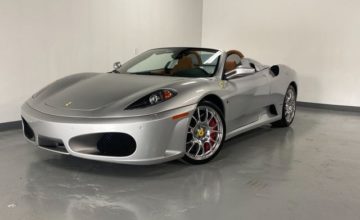As the Porsche company approached the 21st century, they realized they were missing out on what was becoming a sizable market sector, namely the mid-sized crossover market. Up until this point the sector had been dominated by brands such as Land Rover and Jeep. However, since the introduction of the Mercedes ML in 1997 and the BMW X5 in 1999, it was becoming obvious to Porsche that they were missing out on something.
Consequently, Porsche designed and introduced its own interpretation of the type in 2002. Porsche was able to call on other similar models within its stable including the Audi Q7 and the Volkswagen Touareg for inspiration and know-how, to allow it to develop a rival for the BMW and Mercedes offerings. Also, with the advent of the Porsche Cayenne as it was to be known, Porsche offered something that had not been available in a Porsche since the discontinuation of the Porsche 928 in 1995, namely a V8 engine.
The base model Porsche Cayenne though is powered by a VR6 derived engine, which is the same unit that powers the above mentioned VW Touareg as well as the Volkswagen Golf R32. It produces around 250 horsepower which is good enough the get the rather large and heavy Porsche Cayenne from rest to 100 kph (62 mph) in around 7.5 seconds.
However, as Porsche is not necessarily known for their slow cars, there are other options available. The next step up is the Porsche Cayenne S. This version has a V8 engine delivering 340 horsepower. This decreases the sprint time from the above 7.5 seconds to a more respectable 6.4 seconds with a top speed of 155 mph.
After that, there is the Porsche Cayenne GTS which houses a 4.8-liter V8 engine which produces 405 horsepower. The sprint time consequently drops again to now below 6 seconds at 5.7 seconds.
There is also available, in true Porsche tradition a Cayenne Turbo and a Cayenne Turbo S. The first of the turbo Cayenne’s had 450 horsepower and so the sprint time dropped again to 5.3 seconds. Mercedes were now taking note though and countered with the Mercedes Benz AMG63 version of the ML. Porsche hadn’t finished though and followed up in 2006 with the Porsche Cayenne Turbo S. The Turbo S was home to a monster 4.5 liter twin-turbo V8 producing 520 hp. This was good enough for a 0-100 kph time of 5.0 seconds and a top speed of 171 miles per hour.
Still, though Porsche had not finished tweaking the performance of the Cayenne and at the Beijing Motorshow in 2008, they revealed a new version of the Turbo and Turbo S. The former had received another 50 hp and so had a 0-100 kph time of 4.9 seconds. The new Cayenne Turbo S now had 550 hp and dropped another 0.2 seconds off the sprint time to 4.7 seconds.
With the introduction of the second-generation Porsche Cayenne in 2010, it is clear that Porsche has not finished with this platform and there are more great things to come.

